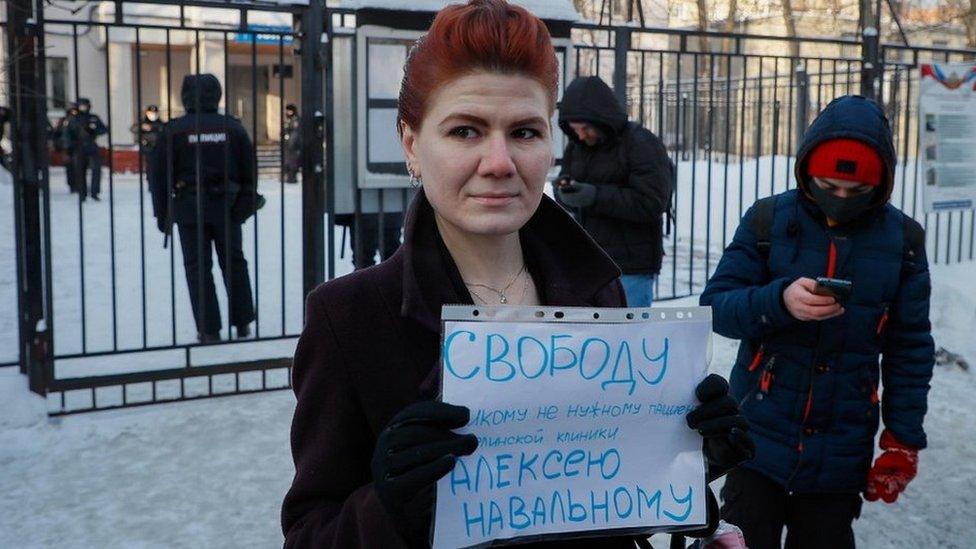Detentions and warnings over Navalny protests
- Published
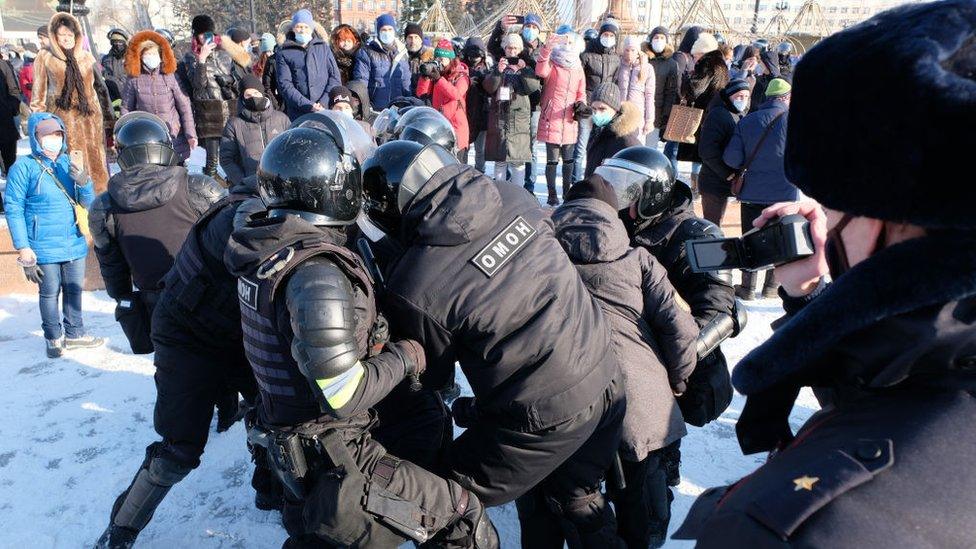
Police warned that unsanctioned protests would be "immediately suppressed"
Russian police have detained close aides of the jailed opposition politician Alexei Navalny, as a string of nationwide protests gets under way.
Police have broken up demonstrations in the eastern Khabarovsk region, amid stern warnings for people to stay home.
Mr Navalny's supporters flooded social media with calls to rally at protests expected in dozens of cities later.
He is Russian leader Vladimir Putin's most high-profile critic.
He was arrested last Sunday after he flew back to Moscow from Berlin, where he had been recovering from a near-fatal nerve agent attack in Russia last August.
On his return, he was immediately taken into custody and found guilty of violating parole conditions. He says it is a trumped-up case designed to silence him.
Alexei Navalny was filmed by the BBC saying goodbye to his wife and then being led away by authorities
More than 60m people have watched his new video about President Vladimir Putin's alleged luxury Black Sea palace.
The Kremlin denies the property belongs to the president.
Among those detained in Moscow on Thursday were his spokeswoman, Kira Yarmysh, and one of his lawyers, Lyubov Sobol. They face fines or short jail terms.
Ms Sobol, who has a young child, was later released. But Ms Yarmysh has now been jailed for nine days.
Prominent Navalny activists are also being held in the cities of Vladivostok, Novosibirsk and Krasnodar.
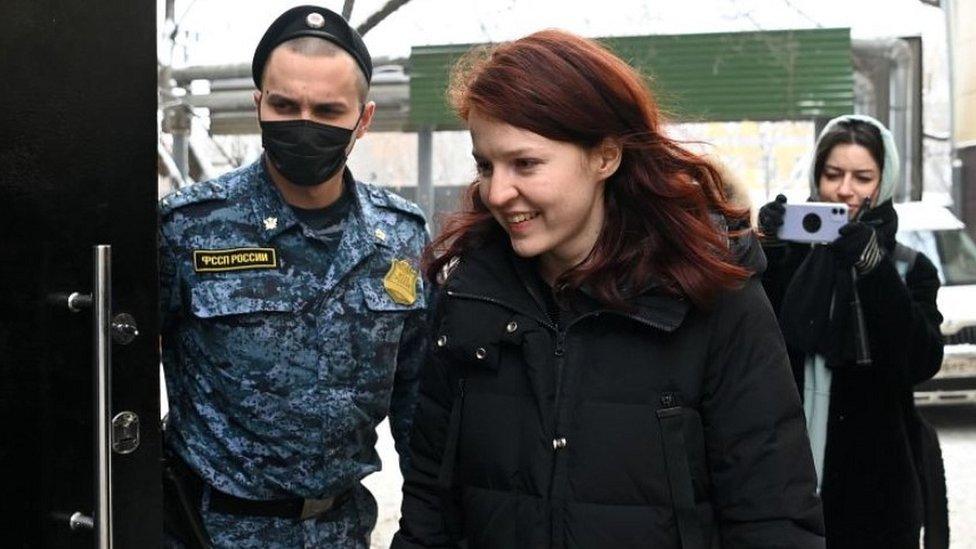
Navalny spokeswoman Kira Yarmysh is accused of violating protest laws
Unauthorised rallies are being planned in more than 60 cities across Russia for Saturday. Moscow police say any unauthorised demonstrations and provocations will be "immediately suppressed".
A thousand people were reported to have come onto the streets in the Khabarovsk region, with some of them already detained.
Mr Navalny's wife Yulia, who travelled back to Russia with him from Germany, said she would demonstrate in Moscow "for myself, for him, for our children, for the values and the ideals that we share".
Alexei Navalny's Anti-Corruption Foundation (FBK) has drawn millions of followers on social media, through slickly produced videos alleging large-scale official corruption. He has long denounced Mr Putin's administration as "feudal" and full of "crooks and thieves".

Why Navalny makes the Kremlin nervous

For a long time the Russian authorities made out that Alexei Navalny was irrelevant. Just a blogger. With a tiny following. No threat whatsoever.
Recent events suggest the opposite. First Mr Navalny was targeted with a nerve agent, allegedly by a secret group of FSB state security hitmen. Instead of investigating the poisoning, Russia is investigating him: on his return from Germany the Kremlin critic was arrested.
Having put Mr Navalny behind bars, the authorities are putting pressure on his supporters. The Kremlin's greatest fear is of a Ukraine-style revolution in Russia that would sweep away those in power.
There's no indication that such a scenario is imminent. But with economic problems growing, the Kremlin will worry that Mr Navalny could act as a lightning rod for protest sentiment. That explains the police crackdown on Navalny allies ahead of Saturday's potential protests.
Plus, this is getting personal. Mr Navalny's video about "Putin's Palace" on the Black Sea was designed to cause maximum embarrassment to the Russian president.

In the "Putin's palace" video, external Mr Navalny alleges that rich businessmen close to Mr Putin paid for a sumptuous 17,691sq m (190,424sq ft) palace for him at Gelendzhik, by the Black Sea.
It is alleged to have a casino, a theatre and many other comforts, including a vineyard and tea house in the sprawling grounds. The Kremlin dismissed the YouTube video as a "pseudo-investigation" aimed at earning money for Mr Navalny.
Prosecutors have warned people against protesting in support of Mr Navalny on Saturday. Russia's education ministry has told parents not to allow their children to attend.
Some Russian celebrities in the arts and sports have pledged support for Mr Navalny. They include ice hockey star Artemi Panarin.
Former world chess champion Garry Kasparov - now a leading anti-Putin activist based in the US - tweeted that pro-Navalny posts were being widely blocked in Russia.
Allow X content?
This article contains content provided by X. We ask for your permission before anything is loaded, as they may be using cookies and other technologies. You may want to read X’s cookie policy, external and privacy policy, external before accepting. To view this content choose ‘accept and continue’.

In a phone call to President Putin on Friday, EU Council President Charles Michel voiced "grave concern" about the jailing of Mr Navalny.
Mr Michel said the EU was "united in its call on Russia to swiftly release Mr Navalny and proceed with the investigation into the assassination attempt on him, in full transparency and without further delay".
In October, the EU imposed sanctions on six top Russian officials and a Russian chemical weapons research centre over the Novichok poisoning of Mr Navalny.
The Kremlin retaliated with tit-for-tat sanctions, denying any role in the attack and rejecting the expert finding that the Russian nerve agent had been used.
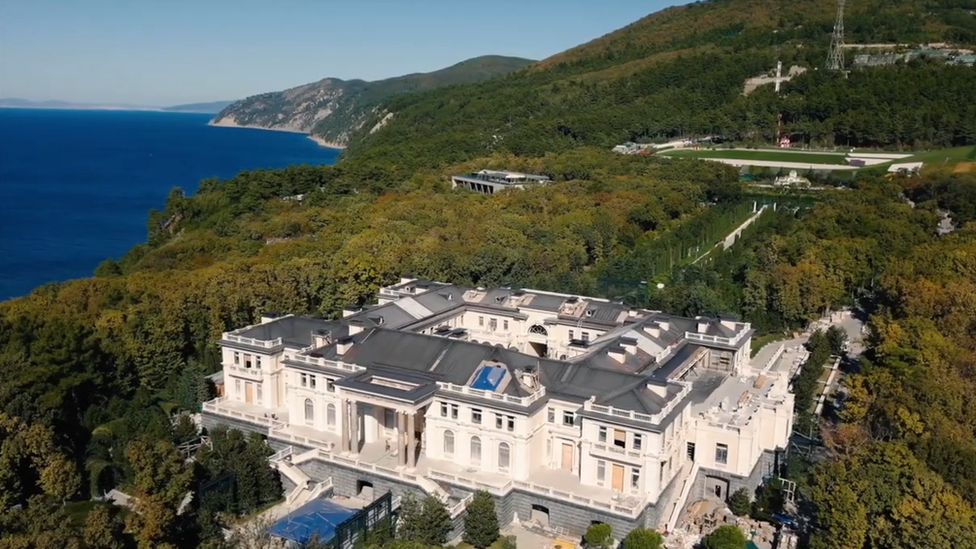
The Black Sea palace allegedly features a casino, an ice rink and a vineyard
TikTok phenomenon
The social media app TikTok has a flood of videos from Russians promoting the protests planned for Saturday. The messages about Mr Navalny have been going viral for several days.
A well-known Russian TikTok user, Slava Varfolomeyev, told BBC Russian: "I go on TikTok and find that every third video is about 'Putin's palace', the detention of Navalny and the 23 January rally!"
He said that on Thursday "this swelled to a maximum: practically seven out of every 10 videos were on that topic [Navalny]". TikTok's popularity is based on short-form videos.
On Wednesday Russia's official media watchdog, Roskomnadzor, demanded that TikTok take down any information "encouraging minors to act illegally", threatening large fines.
- Published20 January 2021
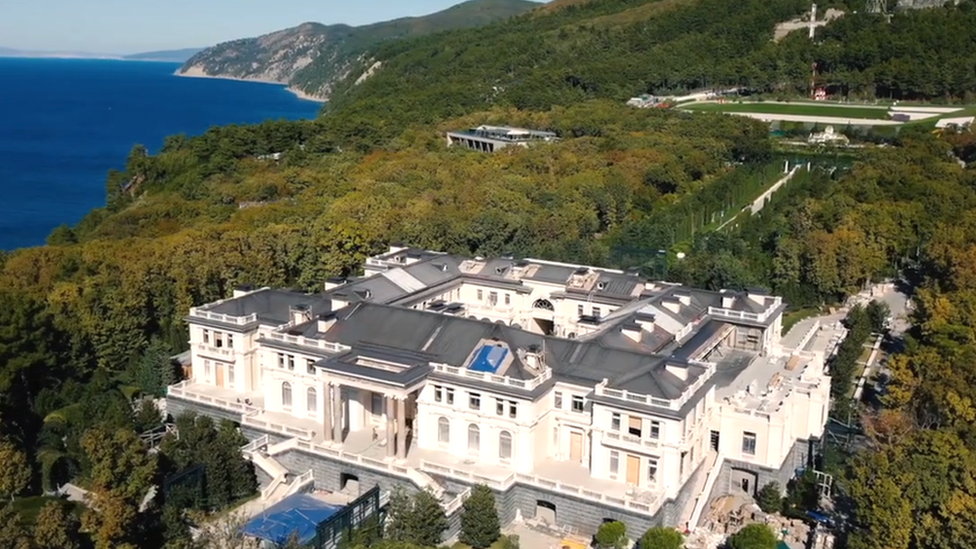
- Published16 February 2024
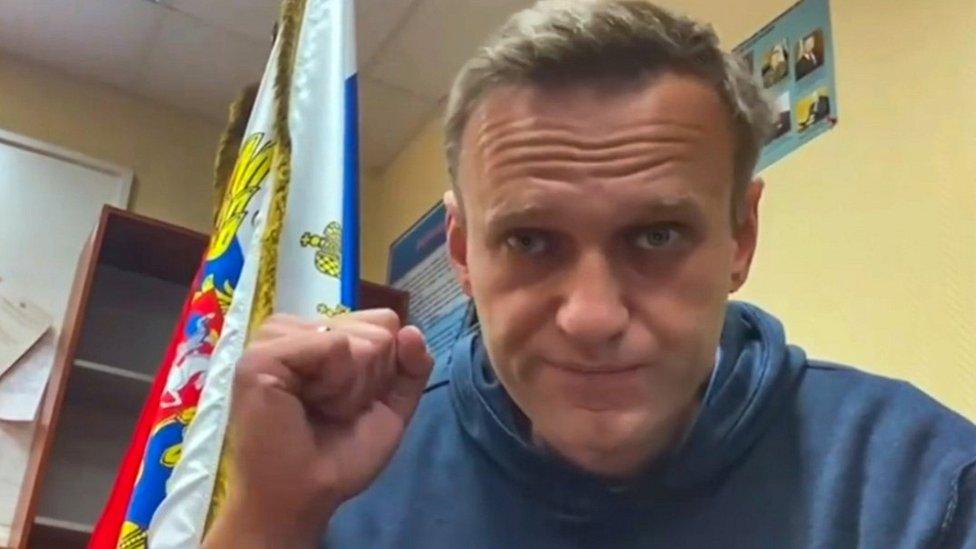
- Published21 January 2021
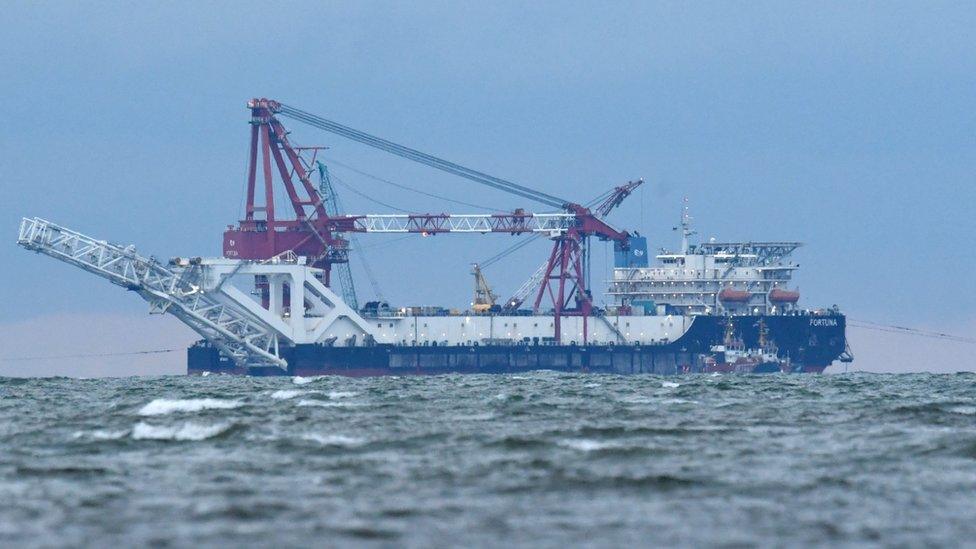
- Published4 September 2020
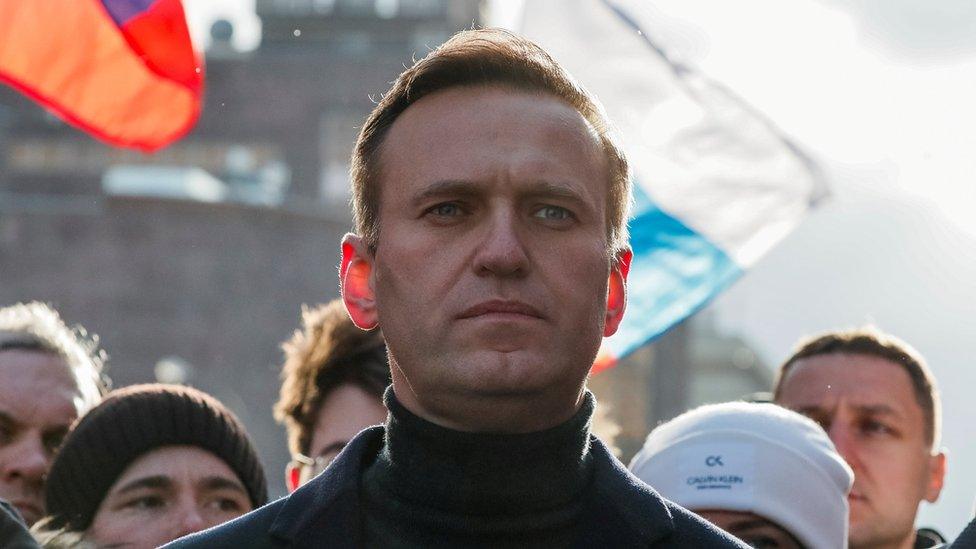
- Published18 January 2021
